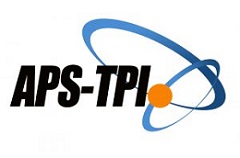Identification of Educational Staff Performance Problems Related to Digital Competence with Front-End Analysis
Abstract
Keywords
Full Text:
PDFReferences
Ala-Mutka, K., & Redecker, C. (2008). Digital Competence for Lifelong Learning. Policy Brief Open Education 2030 View project Learning 2.0 View project. https://doi.org/10.13140/RG.2.2.17285.78567
Cattaneo, A. A. P., Antonietti, C., & Rauseo, M. (2022). How digitalised are vocational teachers? Assessing digital competence in vocational education and looking at its underlying factors. Computers and Education, 176. https://doi.org/10.1016/j.compedu.2021.104358
Chang, W. W., Huang, C. M., & Kuo, Y. C. (2015). Design of Employee Training in Taiwanese Nonprofits. Nonprofit and Voluntary Sector Quarterly, 44(1), 25–46. https://doi.org/10.1177/0899764013502878
Cotes, J., & Ugarte, S. M. (2019). A systemic and strategic approach for training needs analysis for the International Bank. Journal of Business Research, 127, 464–473. https://doi.org/10.1016/J.JBUSRES.2019.05.002
Dagnew Gebrehiwot, G., & Elantheraiyan, P. (2023). A study on the effect of training on employee performance in the case of Mekelle City, Tigray, Ethiopia. Social Sciences and Humanities Open, 8(1). https://doi.org/10.1016/j.ssaho.2023.100567
Demissie, E. B., Labiso, T. O., & Thuo, M. W. (2022). Teachers’ digital competencies and technology integration in education: Insights from secondary schools in Wolaita Zone, Ethiopia. Social Sciences and Humanities Open, 6(1). https://doi.org/10.1016/j.ssaho.2022.100355
Dias-Trindade, S., & Albuquerque, C. (2022). University Teachers’ Digital Competence: A Case Study from Portugal. Social Sciences, 11(10). https://doi.org/10.3390/socsci11100481
Garzón-Artacho, E., Sola-Martínez, T., Romero-Rodríguez, J. M., & Gómez-García, G. (2021). Teachers’ perceptions of digital competence at the lifelong learning stage. Heliyon, 7(7). https://doi.org/10.1016/j.heliyon.2021.e07513
Hendrani, D., Eveline Siregar, & Suyitno Muslim. (2022). Mixed Learning with a Project Based Learning (PjBL) approach in Raid Planning Execution (RPE) Training Courses. Indonesian Journal Of Educational Research and Review, 5(2), 342–355. https://doi.org/10.23887/ijerr.v5i2.50841
Hinojo-Lucena, F. J., Aznar-Diaz, I., Caceres-Reche, M. P., Trujillo-Torres, J. M., & Romero-Rodriguez, J. M. (2019). Factors Influencing the Development of Digital Competence in Teachers: Analysis of the Teaching Staff of Permanent Education Centres. IEEE Access, 7, 178744–178752. https://doi.org/10.1109/ACCESS.2019.2957438
Holloway, K., Arcus, K., & Orsborn, G. (2018). Training needs analysis – The essential first step for continuing professional development design. Nurse Education in Practice, 28, 7–12. https://doi.org/10.1016/j.nepr.2017.09.001
Kanango, J., Bhatnagar, A., Gupta, R., & Kashyap, V. (2023). Designing a short-term training course curriculum using the quality function deployment (QFD). International Journal of Quality & Reliability Management, 40(9), 2247–2277. https://doi.org/10.1108/IJQRM-05-2022-0150
Khoironi, C. (2020). Pengaruh Analisis Kebutuhan Pelatihan Budaya Keamanan Siber Sebagai Upaya Pengembangan Kompetensi Bagi Aparatur Sipil Negara di Era Digital. Jurnal Studi Komunikasi Dan Media, 24.
Mahmud, K. T., Saira Wahid, I., & Arif, I. (2019). Impact of training needs assessment on the performance of employees: Evidence from Bangladesh. Cogent Social Sciences, 5(1). https://doi.org/10.1080/23311886.2019.1705627
Mercader, C., & Gairín, J. (2020). University teachers’ perception of barriers to the use of digital technologies: the importance of the academic discipline. International Journal of Educational Technology in Higher Education, 17(1). https://doi.org/10.1186/s41239-020-0182-x
Nawangwulan, S. (2018). Analisis Kebutuhan Pelatihan dan Pengembangan Sumber Daya Manusia (Analysis of Training Needs and Human Resource Development). Jurnal Manajemen Kesehatan Yayasan RS.Dr. Soetomo, 1, 24–29.
Oberländer, M., Beinicke, A., & Bipp, T. (2020). Digital competencies: A review of the literature and applications in the workplace. Computers and Education, 146. https://doi.org/10.1016/j.compedu.2019.103752
Prawiradilaga, D. S., & Chaeruman, U. A. (2018). Modul Hypercontent: Teknologi Kinerja (Performance Technology). Prenadamedia Group.
Riina, V., Stefano, K., & Yves, P. (2022). DigComp 2.2: The Digital Competence Framework for Citizens - With new examples of knowledge, skills and attitudes (Issue KJ-NA-31006-EN-N (online),KJ-NA-31006-EN-C (print)). Publications Office of the European Union. https://doi.org/10.2760/115376 (online),10.2760/490274 (print)
Salas, E., Tannenbaum, S. I., Kraiger, K., & Smith-Jentsch, K. A. (2012). The Science of Training and Development in Organizations: What Matters in Practice. Psychological Science in the Public Interest, Supplement, 13(2), 74–101. https://doi.org/10.1177/1529100612436661
Schachter, H. L., Hall, M. L., & Nania, S. (2016). Training Design and Evaluation: An Example From A Satellite Based Distance Learning Program. Public Administration Quarterly, 21, 370. https://api.semanticscholar.org/CorpusID:166501323
Susanti, S., Khaerudin, & Solihatin, E. (2022). Analisis Kebutuhan untuk Pengembangan Flipped Classroom dengan Pendekatan Cognitive Apprenticeship untuk Pelatihan Guru Baru di SIT Fitrah Hanniah. Prosiding Seminar Nasional Fakultas Tarbiyah Dan Keguruan Universitas Islam Alaudin Makassar, 458–467.
Todd, E. M., & Stewart, P. (2023). Guidelines for training design thinking in organizations. Industrial and Commercial Training, 55(3), 364–374. https://doi.org/10.1108/ICT-10-2022-0076
Tramontano, C., Grant, C., & Clarke, C. (2021). Development and validation of the e-Work Self-Efficacy Scale to assess digital competencies in remote working. Computers in Human Behavior Reports, 4. https://doi.org/10.1016/j.chbr.2021.100129
Trenerry, B., Chng, S., Wang, Y., Suhaila, Z. S., Lim, S. S., Lu, H. Y., & Oh, P. H. (2021). Preparing Workplaces for Digital Transformation: An Integrative Review and Framework of Multi-Level Factors. In Frontiers in Psychology (Vol. 12). Frontiers Media S.A. https://doi.org/10.3389/fpsyg.2021.620766
Vasanthi, S., & Rabiyathul Basariya, S. (2019). Designing implementing and evaluating employee training programs. International Journal of Recent Technology and Engineering, 8(3), 3055–3058. https://doi.org/10.35940/ijrte.C4863.098319
Vishnu, S., Raghavan Sathyan, A., Susan Sam, A., Radhakrishnan, A., Olaparambil Ragavan, S., Vattam Kandathil, J., & Funk, C. (2022). Digital competence of higher education learners in the context of COVID-19 triggered online learning. Social Sciences and Humanities Open, 6(1). https://doi.org/10.1016/j.ssaho.2022.100320
Zhao, Y., Pinto Llorente, A. M., & Sánchez Gómez, M. C. (2021). Digital competence in higher education research: A systematic literature review. Computers and Education, 168. https://doi.org/10.1016/j.compedu.2021.104212
<a style="display: none;"
Refbacks
- There are currently no refbacks.





.png)













